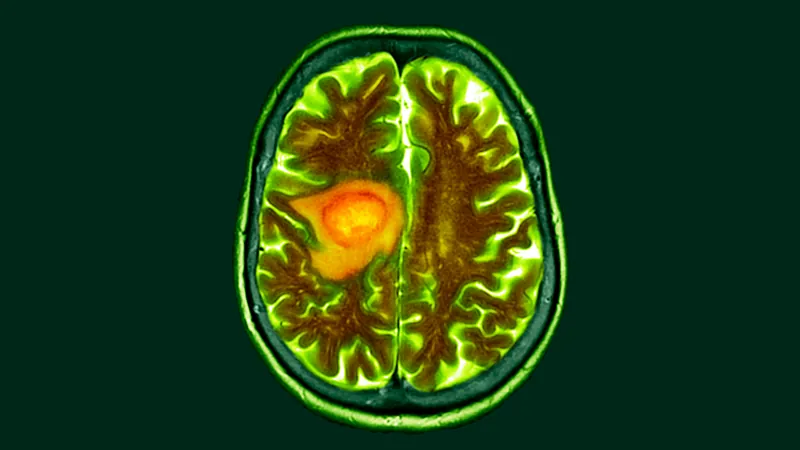
Revolutionary Diet Change May Pave the Way to Treat Deadly Brain Cancer: New Study Reveals
2025-09-15
Author: Li
A Groundbreaking Discovery in Brain Cancer Treatment
Imagine a world where brain cancer, specifically glioblastoma, can be tackled more effectively thanks to changes in our diet. A recent study shines a spotlight on this very possibility, suggesting that modifying our dietary intake could significantly enhance the efficacy of cancer therapies.
Unlocking the Metabolic Weakness of Glioblastoma
Researchers believe that by exploiting a critical metabolic vulnerability in glioblastoma, they can extend survival rates. Conducted by experts at the University of Michigan, the study brilliantly combines lab investigations with clinical practice, indicating a novel way forward for glioblastoma treatment. Published in Nature on September 3, the findings underscore how a deeper understanding of tumor cell metabolism can open new windows for therapies against this notorious disease.
The Science Behind Diet and Cancer
Healthy brain cells require fuel for essential functions like signaling and neurotransmitter release, while cancer cells drastically alter these processes to prioritize rapid division. Costas Lyssiotis, one of the study's lead authors, explains that the real challenge in cancer treatment lies in effectively targeting the tumor without harming healthy cells.
Innovative Research Methods
Dr. Dan Wahl and his team took a close look at how glioblastoma alters its metabolic pathways in both human and animal subjects. The study involved unique protocols, such as infusing patients with tagged glucose before surgery, allowing researchers to trace how tumor cells metabolized this sugar compared to healthy tissue.
How Tumor Cells Outsmart Treatments
While healthy cells utilize glucose for cell respiration and the production of critical amino acids, tumor cells bypass these functions to generate nucleotides, essential for their rapid replication. Chemoradiation therapies aim to destroy the DNA of these cancer cells, but their ability to reroute glucose metabolism gives them a continuous supply of building blocks to repair damage.
A Dietary Solution?
The researchers devised an experiment where mice with human cancer cells were put on a low-serine diet. This dietary tweak compelled the tumor cells to revert glucose metabolism to produce serine, significantly reducing their nucleotide synthesis and increasing vulnerability to chemoradiation. The results? Mice on this diet lived longer than those receiving standard treatment alone!
Looking Ahead: From Lab to Clinic
Wahl has ambitious plans to conduct a follow-up clinical study with human patients based on these promising results. However, he acknowledges the challenges involved in implementing dietary changes alongside rigorous cancer treatments, as it may be quite demanding for patients. Nevertheless, the isotope tracing method developed in this study offers invaluable insights into tumor metabolism that could revolutionize glioblastoma treatment.
Endless Possibilities in Cancer Research
Lyssiotis emphasizes that this groundbreaking research is just the beginning. With serine modification being the easiest to implement currently, the team is excited to explore other dietary changes that could bring further enhancements to treatment plans for this aggressive form of cancer.





 Brasil (PT)
Brasil (PT)
 Canada (EN)
Canada (EN)
 Chile (ES)
Chile (ES)
 Česko (CS)
Česko (CS)
 대한민국 (KO)
대한민국 (KO)
 España (ES)
España (ES)
 France (FR)
France (FR)
 Hong Kong (EN)
Hong Kong (EN)
 Italia (IT)
Italia (IT)
 日本 (JA)
日本 (JA)
 Magyarország (HU)
Magyarország (HU)
 Norge (NO)
Norge (NO)
 Polska (PL)
Polska (PL)
 Schweiz (DE)
Schweiz (DE)
 Singapore (EN)
Singapore (EN)
 Sverige (SV)
Sverige (SV)
 Suomi (FI)
Suomi (FI)
 Türkiye (TR)
Türkiye (TR)
 الإمارات العربية المتحدة (AR)
الإمارات العربية المتحدة (AR)